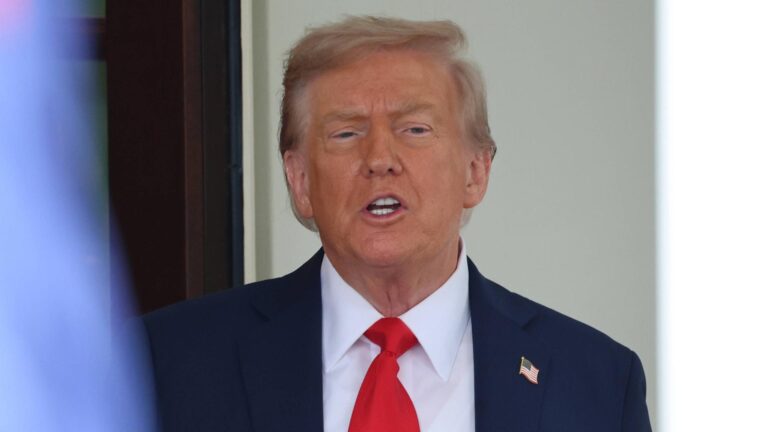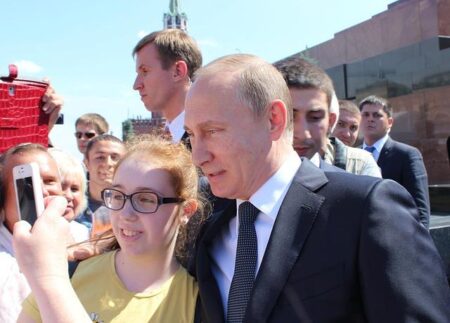Former U.S. President Donald Trump has intensified pressure on NATO member countries to cease their purchases of Russian oil, citing the need to weaken Moscow’s economic support amid the ongoing conflict in Ukraine. As global tensions around energy supplies and geopolitical alliances escalate, Trump’s call underscores the challenges facing Western nations striving to balance energy security with coordinated sanctions against Russia. This development adds a new dimension to the transatlantic dialogue on how best to respond to Russia’s aggression while managing the complex dynamics of international energy markets.
Trump Urges NATO Allies to End Russian Oil Imports to Weaken Kremlin’s War Effort
Former U.S. President Donald Trump has intensified calls for NATO member countries to sever their dependence on Russian oil as a strategic move to undermine Moscow’s ability to finance its military campaign. Speaking at a recent conference, Trump highlighted the critical need for unity among Western allies, emphasizing that continuing to purchase crude from Russia directly fuels the Kremlin’s war chest. He urged leaders to implement swift and decisive measures, including sanctions and alternative energy partnerships, to accelerate the transition away from Russian imports.
Trump outlined several key actions for NATO nations to consider:
- Establishing cooperative energy agreements with Middle Eastern and North African producers
- Enhancing renewable energy infrastructure to reduce long-term fossil fuel reliance
- Implementing a targeted embargo on Russian oil exports within NATO borders
- Pooling collective resources to stabilize global oil prices amid potential supply volatility
| Country | Russian Oil Imports (% of total) | Projected Reduction Target |
|---|---|---|
| Germany | 35% | 100% by Q4 2024 |
| Italy | 27% | 80% by Q3 2024 |
| Poland | 15% | 100% by Q2 2024 |
| France | 10% | 90% by Q4 2024 |
Analysis of NATO’s Dependence on Russian Energy and the Challenges of Diversification
Europe’s reliance on Russian energy has long posed a strategic vulnerability, one that NATO members grapple with amid escalating geopolitical tensions. Despite efforts to diversify energy sources, a significant share of oil and natural gas imports still flow from Russia, underpinning critical sectors across many alliance countries. This dependence complicates collective policy decisions, as abrupt cessation could lead to economic instability and energy shortages, particularly during winter months. The challenge lies in balancing urgent geopolitical stances against maintaining energy security and economic resilience.
- Economic Impact: Sudden disruption risks soaring energy prices and inflationary pressures.
- Supply Constraints: Limited immediate alternatives exist to replace Russian oil without infrastructure upgrades.
- Diversification Efforts: Investments in renewables, LNG, and pipeline projects show promise but require time.
Addressing these challenges demands coordinated NATO strategies emphasizing rapid diversification. Emerging partnerships with Middle Eastern and North African suppliers, coupled with accelerated renewable energy deployment, aim to reduce this dependency. However, the transition exposes NATO to short-term vulnerabilities, including political discord among members with varying energy profiles. The following table highlights the approximate dependence levels of key NATO countries on Russian oil imports, illustrating the uneven landscape across the alliance:
| Country | Russian Oil Import % | Primary Alternatives |
|---|---|---|
| Germany | 35% | Norway, Middle East |
| Italy | 28% | Libya, Algeria |
| Poland | 15% | Norway, US LNG |
| Turkey | 40% | Azerbaijan, Iran |
Experts Recommend Enhanced Coordination and Investment in Alternative Energy Sources for Alliance Security
In the wake of escalating geopolitical tensions, analysts emphasize that strengthening the alliance’s energy security hinges on a strategic pivot towards alternative energy investments. Experts argue that reliance on traditional fossil fuels, particularly those imported from adversarial states, exposes member nations to undue risks. They advocate for a diversified energy portfolio that includes renewables such as solar, wind, and bioenergy, which not only reduce dependency but also align with global sustainability goals. This transformative shift requires coordinated policies and increased funding to accelerate research, infrastructure development, and integration across member states.
Collaboration among alliance nations is critical to overcoming existing logistical and technological barriers. Experts suggest that pooling resources and sharing innovation will enhance efficiency and resilience against supply shocks. Key recommendations include:
- Establishing a centralized fund dedicated to renewable projects
- Harmonizing regulatory frameworks to facilitate cross-border energy trade
- Investing in smart grid technologies for better energy distribution and storage
| Alternative Energy Type | Current Investment (Billion USD) | Projected Growth (%) |
|---|---|---|
| Solar | 15 | 12 |
| Wind | 10 | 15 |
| Bioenergy | 8 | 9 |
To Wrap It Up
As tensions continue to mount over Russia’s actions, former President Donald Trump’s call for NATO allies to cease purchasing Russian oil adds a new dimension to the ongoing geopolitical standoff. Whether his push will influence current policy remains to be seen, but it underscores the persistent complexities facing the alliance as it seeks to balance energy security with unified opposition to Moscow’s aggression. Reuters will continue to monitor developments in this evolving story.




